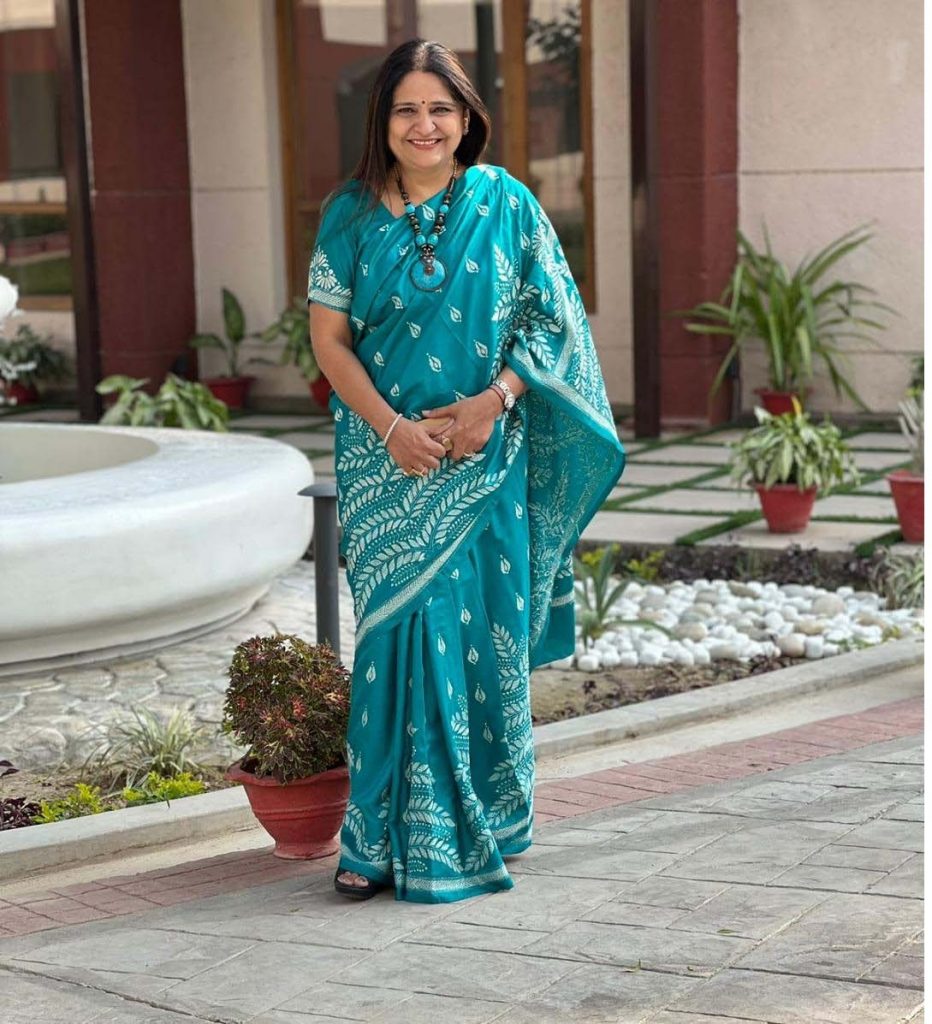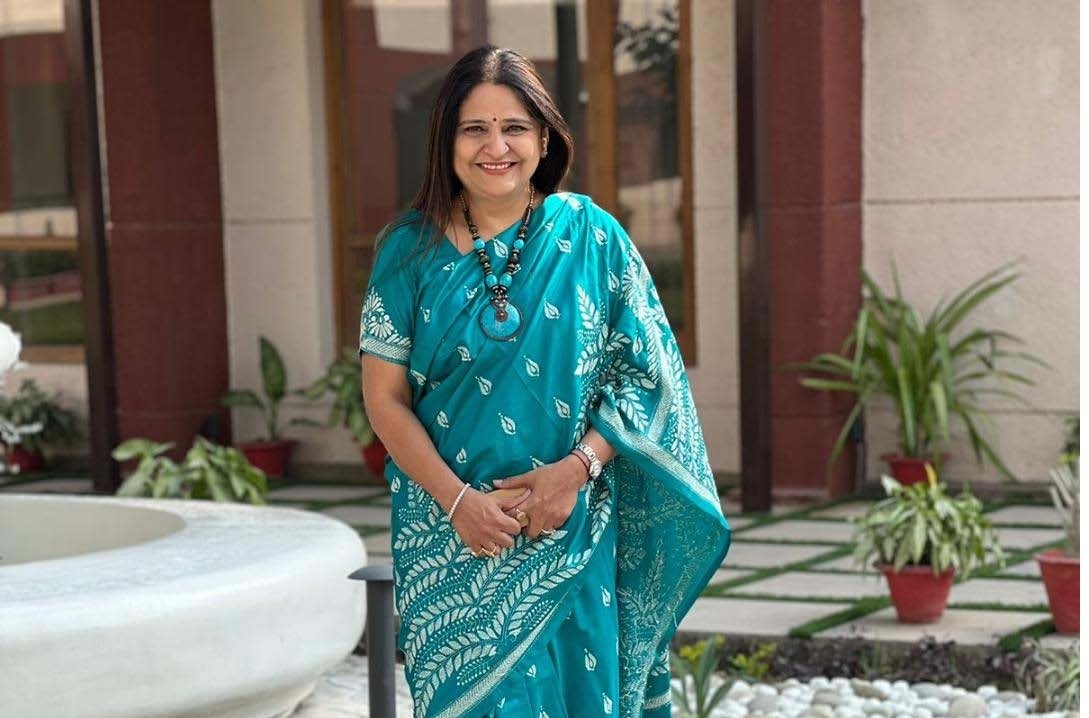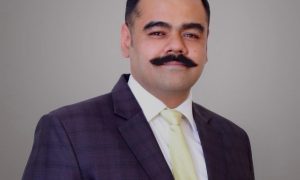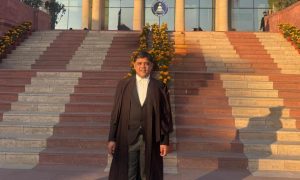This interview has been published by Namrata Singh and The SuperLawyer Team

Ms. Gore, could you share with us some insights into your journey from your college days at Campus Law Centre, New Delhi, to becoming a Senior Partner at Karanjawala & Co. and an Advocate on Record at the Supreme Court of India? What were some of the challenges you faced along the way, and how did you overcome them to achieve your current level of success?
One of the most enriching experiences of my life was my time at the University of Delhi. My alma mater, Campus Law Centre, Faculty of Law is where I received a holistic understanding of the subject and the guidance I received from my professors helped in shaping the lawyer I am today. I believe apart from theoretical knowledge of the subject, my passion and inquisitive nature as regards law and its practical application, helped me in becoming an Advocate on Record. Being an Advocate on Record pushed me further towards learning and growth. My perseverance and dedication through this journey along with a commitment to professional standards helped in my growth in the profession. A combination of leadership skills, effective teamwork and delegation abilities helped me reach the position of a senior partner at Karanjawala & Co. Earlier the legal profession, especially litigation, was a male dominant profession. Being a female, the major challenge I faced was balancing work and family responsibilities together. I believe the support from my family and the innate skill of women to multi-task helped me smoothly sail through such challenges.
As a distinguished mediator and advocate, you’ve handled a wide array of cases, including complex constitutional matters and high-conflict mediations. How do you maintain a balance between these different areas of law, and what drives your passion for mediation?
The most crucial aspect for maintaining a balance between different areas of law, especially litigation and mediation, is adaptability. Dispute resolution is dynamic and I believe being a lawyer who wishes to practice and work in different fields of law, adapting to the medium of resolution and identification of the requirement of that particular case is extremely essential. The pendency of cases and the time taken in administration of justice led to my interest in mediation. I firmly believe that where justice is administered at a belated stage is as good as denial of justice. Through mediation, there is a sense of fulfilment in helping the clients to reach a mutually agreed solution in an efficient manner. Witnessing the positive impact on the lives of the clients is a driving force too. Further, being a certified mediator I feel my communication and negotiation skills have improved which is not only valuable in mediation but also in various legal contexts. My passion for mediation has culminated in the form of a book named as “Handbook on Mediation”.
Your expertise extends beyond the courtroom, with a focus on training sessions, guest lectures, and judging competitions. What motivates you to engage in these activities, and how do you believe they contribute to the legal community?
Having an experience of over 30 years, I feel it is my duty to give back to my professional legal community by sharing my knowledge and mentoring aspiring legal professionals. In my opinion, continuous learning is important to maintain high professional standards and engaging in training sessions helps in staying updated on latest legal developments and emerging trends. Such training sessions, lectures and judging competitions are platforms to share insights and practical advice with law students and fellow professionals. I believe by active participation in such activities I can make a small contribution towards shaping the future of the legal profession.
In your distinguished career, you’ve handled over 350 private and court-annexed mediations. Can you reflect on one particularly challenging mediation session and how you navigated through it to achieve a successful resolution?
Yes, I have handled commercial, matrimonial and religious matters for mediation. The first key in mediation is confidentiality therefore, it would not be appropriate for me to mention the factual matrix, but I can certainly say that in mediation sessions a lot of brainstorming is required, sometimes the high emotional healing process is required in a mediation and sometimes transformative solutions are required. A mediator has no advisory role in a mediation and acts like a third party and is a neutral party who just facilitates resolution of disputes between the contesting parties through negotiation and communication skills. Mediation is a structural process in which a Mediator can use his / her own styles and with the passage of time once you are experienced enough, involves active listening, confidentiality, voluntariness, neutrality, empowerment and creative solutions. A Mediator is incharge of the mediation sessions and can use this power to foster a collaborative approach settling the matter.
As a senior partner at Karanjawala & Co. and an advocate on record at the Supreme Court, you’ve been involved in landmark cases and constitutional matters. Can you share a bit about your experience in handling such high-profile cases and the unique challenges they present?
Having more than two decades of experience in the profession, I have worked and handled a wide array of cases ranging from complex constitutional matters, commercial disputes, partnership disputes, employment disputes, mining law, real estate to other complex civil lawsuits. We successfully represented a subsidiary of Tata Power in a constitutional matter which involved the question of whether a foreign company could assert fundamental rights under the Constitution of India. We have successfully represented big companies like Tata Motors, Tata Steel, Bharti Shipyard, GVK EMRI in a wide variety of matters ranging from mining, taxation and property disputes to name a few. We have successfully represented our clients in medical negligence cases. With so many years of experience, it is not possible to list down the cases I have handled and worked on. I firmly believe that whether it is a high-profile matter involving huge stakes or an individual matter, or matter relating to admission of a visually impaired student or any pro-bono matters, public interest litigation pertaining to environmental causes or personal liberties, what matters for a lawyer is to work with perseverance, diligence and successfully representing the client with best of the legal knowledge. I strongly feel that every lawyer at some stage in the initial years of his practice should work with some NGO for some time and try to do legal aid matters which is the best way to give back to the society.
In your opinion, what are some of the key qualities or skills that aspiring lawyers should cultivate to excel in the legal profession, particularly in areas such as litigation, arbitration, and mediation?
In my opinion, the most important qualities as mentioned earlier that aspiring lawyers should cultivate to excel in the profession are continuous learning, adaptability and perseverance. Strong research and drafting skills are imperative for a lawyer. I believe analytical thinking to construct robust strategies and ability to persuasively present arguments are essential in litigation. Apart from these qualities, to excel in arbitration, a feel it is important to have deep understanding of the arbitral procedures and to have advocacy in arbitration, one should hone his/her skills in presenting evidence. In mediation, I feel the mediator must possess active listening and communication skills, able to balance the power play between the parties along with the ability to set aside personal biases. Mediation process will only be effective if the mediator can cultivate persistence to guide the parties through the process, build trust in the process of mediation, a Mediator works as a bridge between the parties to facilitate a dialogue between them and help them reach an amicable settlement.
Your work has been recognized by prestigious organizations and publications, earning you numerous awards and accolades. How do you stay grounded amidst such recognition, and what values do you prioritize in your legal practice?
I am extremely grateful for the recognition I have received by my community. The recognition and accolades push me to achieve work even harder and with more diligence. I have the willingness to learn and grow and it is a never ending process. Having reached such a position, I still feel it is a dynamic profession with always something or other to learn and imbibe from my fellow professionals including my juniors. Apart from diligence and hard work, prioritizing the interests of the clients is of utmost importance and values like integrity and empathy help in building trust with clients. Lastly, commitment to ethical conduct and professionalism is essential and adds to your credibility.
Your commitment to continuous learning is evident through your participation in various international conferences and training programs. How do these experiences influence your approach to practicing law and mediation in an evolving legal landscape?
Participating in international conferences and training programs helps in getting a perspective of the legal system, practices and challenges worldwide. These conferences and programs are great opportunities for networking and exchange of ideas. It also gives exposure to new technologies and innovative legal practices along with emerging trends in the legal field. Alternate dispute redressal mechanisms, especially mediation techniques are discussed in such conferences. It helps in being aware of the evolving legal landscape globally.
Outside of your professional pursuits, do you have any personal hobbies or interests that you enjoy? How do you find balance between your career and personal life?
It is very important to have a life outside the office which includes having hobbies and interests. Hobbies outside the professional pursuits help in unwinding and provide a break from work pressure. Apart from a source of relaxation, hobbies also help in personal development and help in maintaining mental and physical health. I enjoy oil-painting and water-painting and it is therapeutic for me. The best way to balance between career and personal life is prioritising and adjusting based on the circumstances and situation.
Looking back at your journey, from your education at Campus Law Centre, New Delhi, to becoming a distinguished legal professional, what advice would you offer to the current generation aspiring to build successful careers in law?
The most important advice I would give to the current generation aspiring to have a successful legal career would be to stay committed to learning and working hard and be resilient as progress is impossible without hard work. It is crucial to have a vision and one should always set short term as well as long term goals as they act as a driving force or motivation to grow in your career. I believe one should always be open and looking for the right opportunities. The new generation is way more aware, connected, focused and intelligent. I wish them all the best in this noble profession.
Get in touch with Nandini Gore-


























